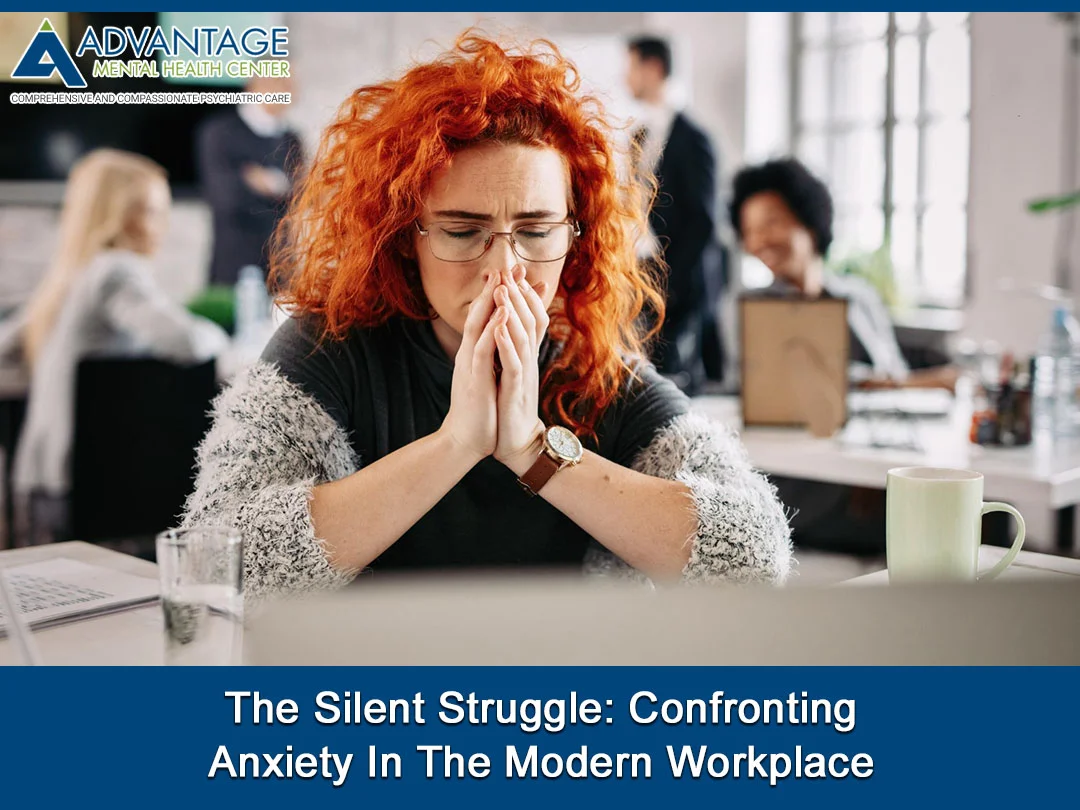In the contemporary professional landscape, where rapid technological advancements and a 24/7 work culture prevail, work-related anxiety has become a silent epidemic. With an escalating drive to excel, professionals face mounting pressures to not only meet but exceed expectations. This pervasive anxiety is more than just an individual’s battle; it’s a complex interplay of demanding work culture, evolving job roles, and the intrinsic human desire for job security and work-life harmony. This comprehensive examination seeks to unravel the intricacies of work-related anxiety, probing its essence, origins, consequences, and the multifaceted approaches required for its alleviation and regulation.
Nature of Work-Related Anxiety
Workplace anxiety is an insidious shadow that looms over numerous employees, characterized by persistent unease, nervousness, and trepidation about work-related challenges. It is a reaction to the anticipation of real or imagined workplace scenarios, exacerbated by a myriad of stressors such as escalating job demands, interpersonal discord, precarious job tenure, or a skewed equilibrium between professional responsibilities and personal life. Unlike ordinary stress, which can be transient and occasionally propelling, workplace anxiety is enduring and debilitating, impeding an individual’s capacity to function optimally.
Causes of Work-Related Anxiety
- Intensified Job Expectations: The relentless pursuit of deadlines, the burden of a substantial workload, and the pressure to perform can engender an unceasing state of apprehension.
- Toxic Work Atmosphere: An environment riddled with hostility, discrimination, or lack of support can significantly amplify anxiety levels.
- Job Precariousness: The perpetual unease regarding the continuity of one’s professional position can provoke profound anxiety.
- Imbalanced Work-Life Synchronization: Struggles to maintain a healthy equilibrium between professional duties and personal pursuits can precipitate continuous stress and anxiety.
Impact of Work-Related Anxiety
The ramifications of work-related anxiety transcend the psychological domain, encroaching upon the physical realm. It can manifest in physiological symptoms such as heightened blood pressure and disrupted sleep patterns and potentially exacerbate chronic health conditions like cardiovascular diseases. From a vocational perspective, it can lead to diminished productivity, increased rates of absenteeism, and, in severe cases, culminate in job termination. Beyond the workplace, anxiety can ripple through one’s personal life, straining relationships and diminishing life satisfaction.
Gender Differences in Work-Related Anxiety
Studies indicate that work-related stress, anxiety, and depression manifest more prominently in women, potentially due to workplace gender bias, the dual demands of career and caretaking responsibilities, and societal norms.
Managing and Preventing Work-Related Anxiety
- Self-Care Practices: Engaging in regular physical activity, ensuring restorative sleep, and maintaining a nutritious diet are pivotal for enhancing well-being and fortifying against stress.
- Mindfulness and Relaxation Modalities: Integrating meditation, yoga, or controlled breathing techniques can be instrumental in modulating anxiety.
- Work-Life Demarcation: Establishing unequivocal limits between professional responsibilities and personal time is imperative.
- Professional Support: Pursuing psychological therapy or counseling can be beneficial in navigating work-related anxiety.
- Corporate Interventions: Employers have a critical role in fostering a supportive work milieu, providing mental health resources, and promoting a sustainable work-life balance.
Addressing work-related anxiety is vital for maintaining a healthy, productive workforce and personal well-being. For those in the Tampa Bay area, Advantage Mental Health Center in Clearwater offers a range of services to help manage and overcome work-related anxiety. Their team of professionals provides personalized care, ensuring that each individual’s needs are met with the utmost attention and expertise. By seeking support from centers like Advantage Mental Health, individuals can take a significant step towards a more balanced and fulfilling life, both professionally and personally.
Picture Credit: Freepik


